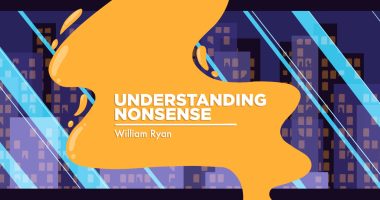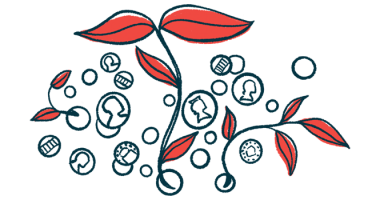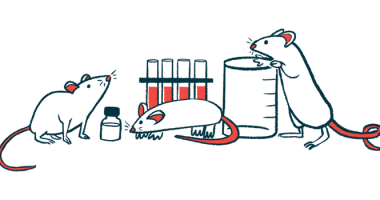The Shame of Feeling Like a Burden Makes It Hard to Receive Care

Every week, to confront old wounds and maybe even heal, I open my mind so my subconscious can push memories to the surface. I feel the emotions there, recall the senses, and meditate on how they drive me today. Then, I release them.
Yesterday, I meditated on humiliating experiences, inviting shameful memories to flow unobstructed. Strangely, many of those memories circulated around acts of love: people reaching out, providing, sharing, caring. People wanted to love me, but I mostly felt shame.
While giving a presentation on ableism, a participant asked me to summarize in one sentence the experience of being sick and deaf. From deep within sprang my response: “Being disabled feels like being a burden.”
To be disabled necessitates dependency upon the abled. We’re stripped of a lot of autonomy and dignity. I recall a string of colonies revolting for their independence, but frankly, most disabled people don’t have the energy for activism and revolt, nor do we have the means to survive without the assistance of others. And so we feel like charity cases in a society that demands thank-you’s for accessibility presented as a gift rather than a right.
We feel like parasites to loved ones who fund us because we don’t have the energy to survive independently in a society that says effective insurance belongs only to those who prove their value in labor. We feel like we’re ruining other people’s fun because we need to “flake” due to fatigue or because they always need to cater to our health limitations. We feel like we’re pitied and, when that pity runs dry, resented.
So we ignore our needs, our boundaries, our worth. We give, give, give, because we always feel we’re paying off debts, deflecting scorn, or proving we’re worth keeping around. When I speak to disabled people, I’ll often learn that despite unjust healthcare costs, they’ll insist on paying for meals for others, that they’re the go-to friend for advice, or that they feel the need to be the funniest or most charming so that others don’t feel uncomfortable due to their suffering.
But there comes a day when our health collapses. Or a day when we grow bitter that we’re always giving and never receiving. In these situations, when we need the most help, we feel shame, fear, and exhaustion. We feel trapped. And yet we’ll realize that we rarely allowed anyone to genuinely help. We set that tone in our relationships.
When we finally sound the siren for aid, we find that many of those we gave ourselves to have shockingly disappeared. People who said they’d always be there for us didn’t alert us to the disclaimer in small print: “Except when your disease scares me.” Is it any surprise that so many people with disabilities have a fear of abandonment?
When I shared this with a friend, he said he’d never abandon me. Aching, I spat that he was a liar. “You don’t know that. Others said the same.” But I also don’t know what would happen. What if he really would be there? If so, I shouldn’t drive him away. People like him definitely won’t be there … if I won’t let them.
There are those who see in us our desperation to be loved despite disability. They ground us, insisting we are loved not for what we do, but for who we are. They help us — maybe even force us — to receive, and they might even make it feel easy. They teach us to trust again.
Many people are disappointing. But if we open ourselves to receiving love, maybe some will surprise us in the most delightful ways. The cystic fibrosis population is getting old. Our friends are maturing with us.
I shuffle again through my memories: My pastor layering affirmations on me while I begged him to shut up because I didn’t believe him. A friend hugging me and refusing to let go while I sobbed about losing my hearing. My mom crying on the phone while making infuriating insurance calls I couldn’t due to my deafness. My friends throwing me a surprise party when, in my depression surrounding failing health, I had cut myself off from them. My lashing out in frustration at a physical therapist who grabbed my arm when I lost my balance. My dad’s friend bringing meals while I was in the ICU. Dad wiping my butt when I was too weak to do it myself. My sister playing with my sweaty hair after I said cruel things to her around the time I almost died.
These people don’t have tally cards tucked into their pockets. There’s no debt. They saw me hurting, and they were compassionate. “Compassion” translates as “suffering with.” It’s a painful love, but a pure one. It’s when vulnerability responds to vulnerability. There’s no time when we are more human than when we share in another’s suffering through sacrificial solidarity.
I don’t want to be repulsed by or fearful of tender love and care. I won’t let my shame steal another good thing.
Note: Cystic Fibrosis News Today is strictly a news and information website about the disease. It does not provide medical advice, diagnosis, or treatment. This content is not intended to be a substitute for professional medical advice, diagnosis, or treatment. Always seek the advice of your physician or other qualified health provider with any questions you may have regarding a medical condition. Never disregard professional medical advice or delay in seeking it because of something you have read on this website. The opinions expressed in this column are not those of Cystic Fibrosis News Today or its parent company, BioNews, and are intended to spark discussion about issues pertaining to cystic fibrosis.









Comments